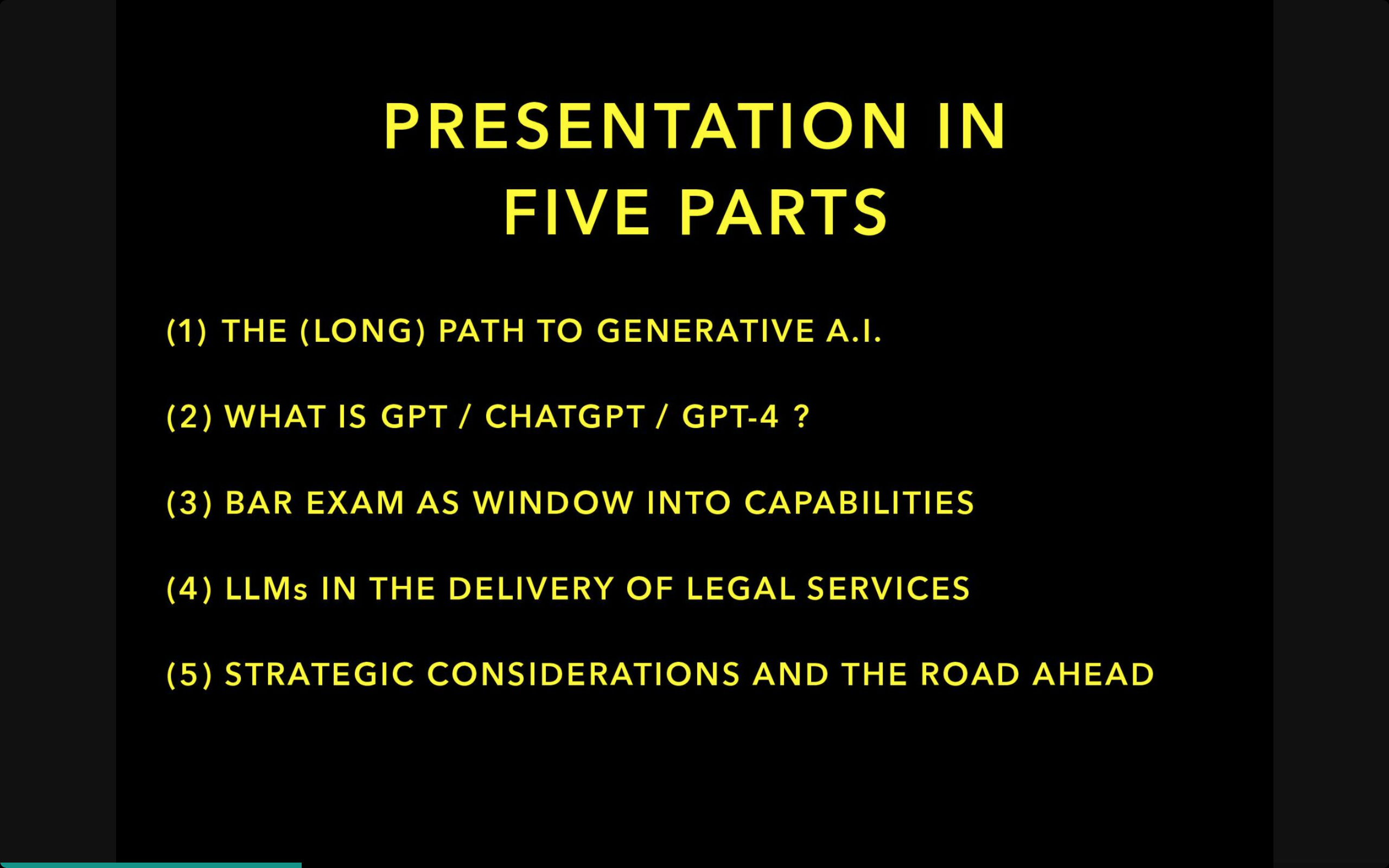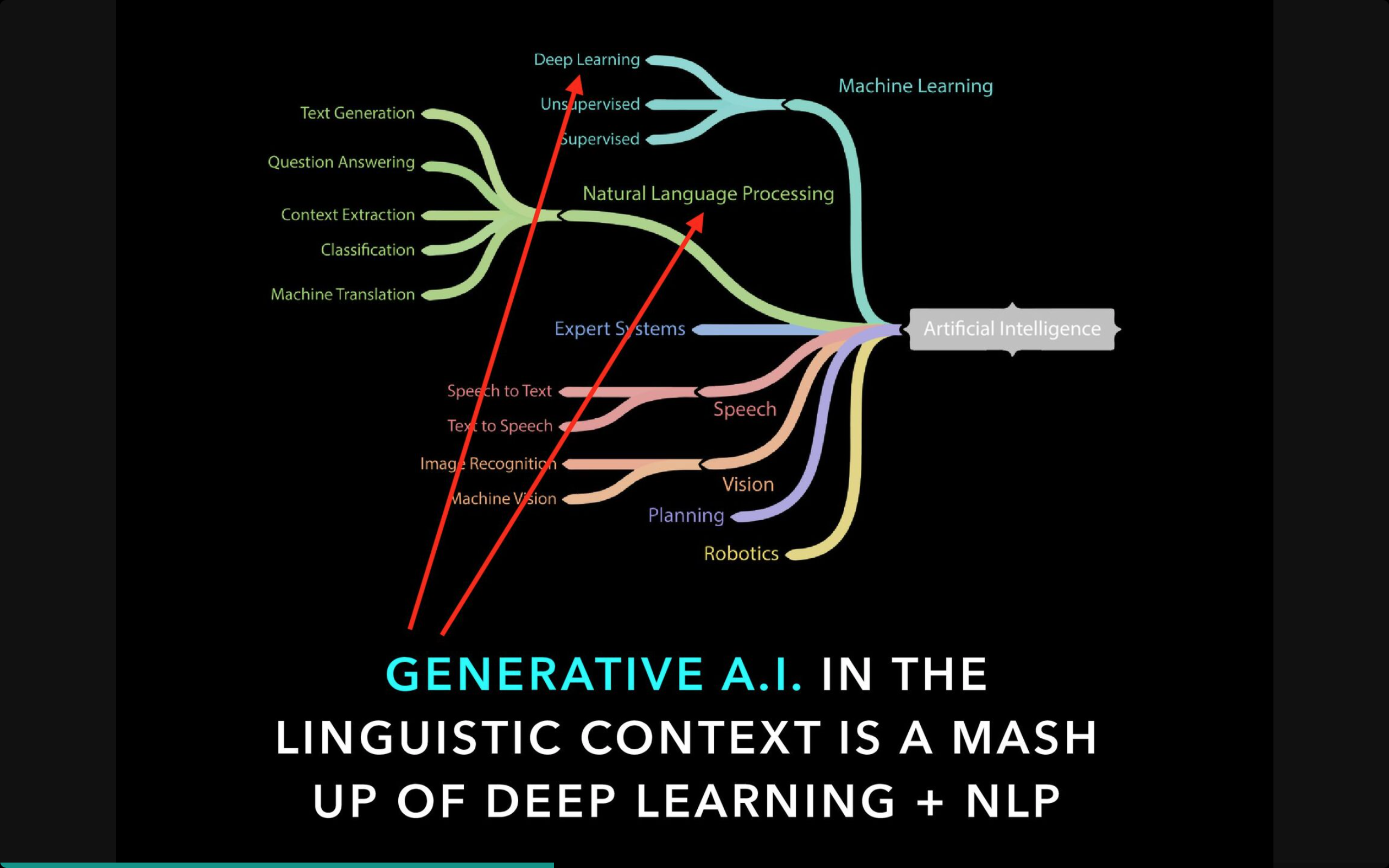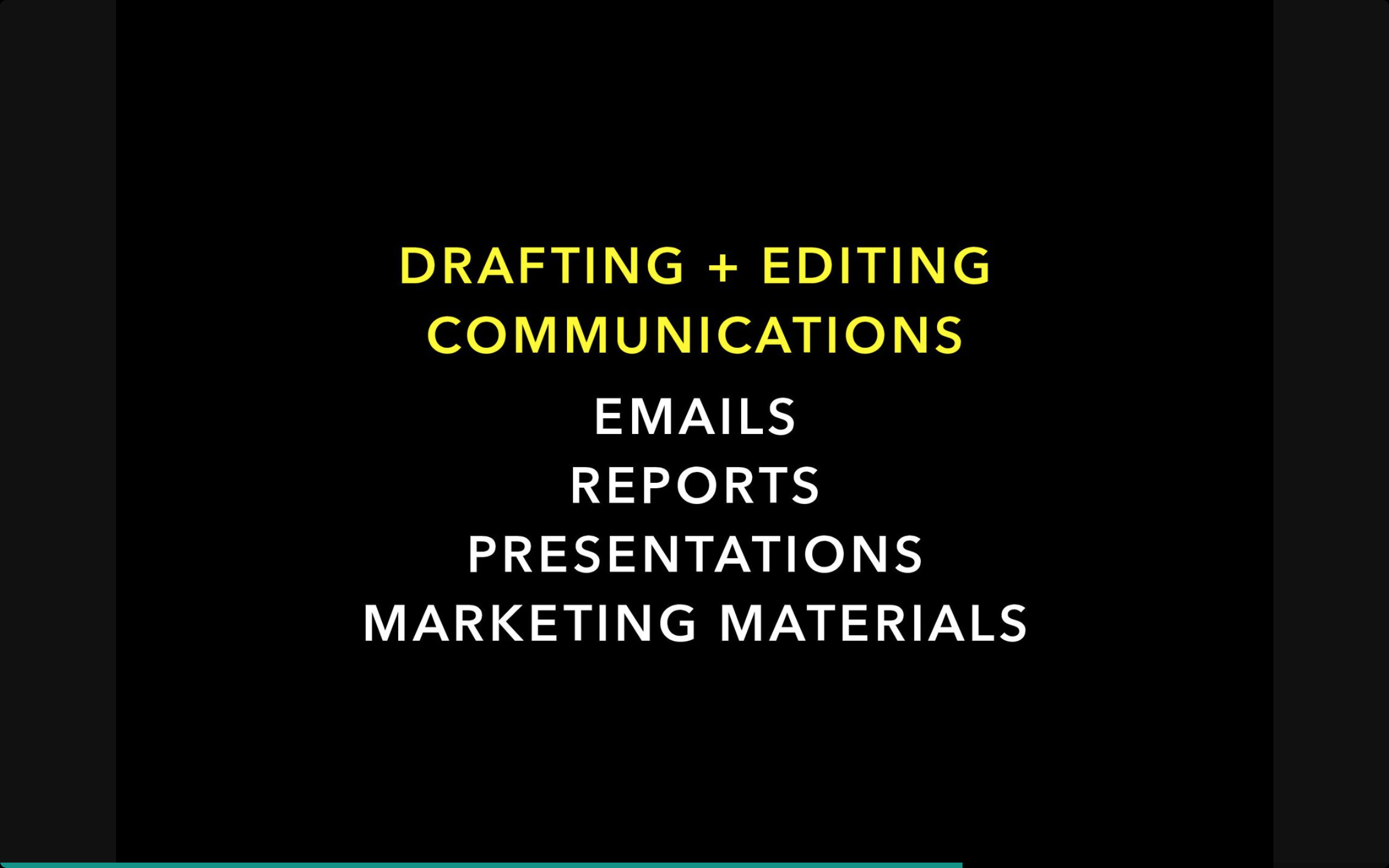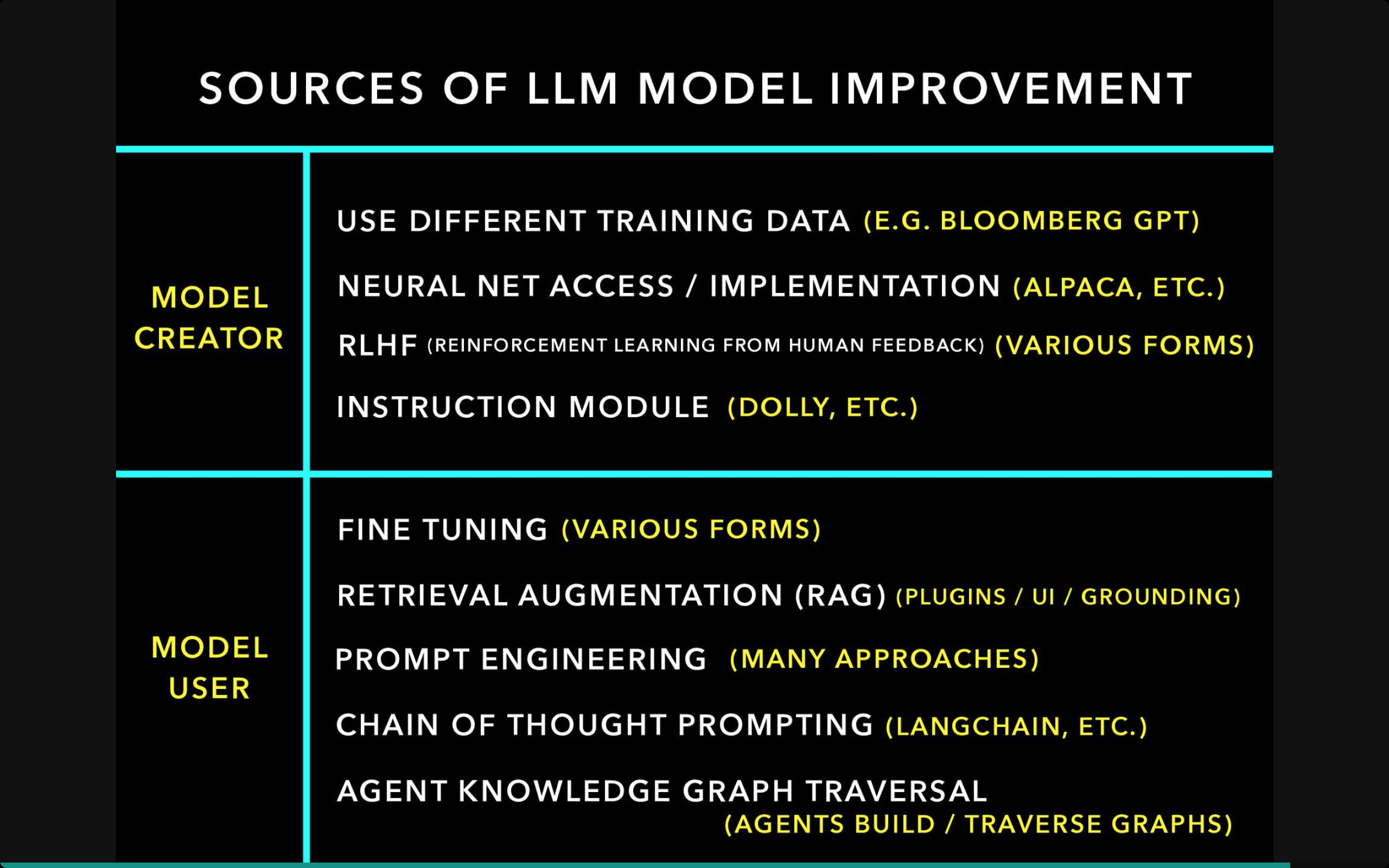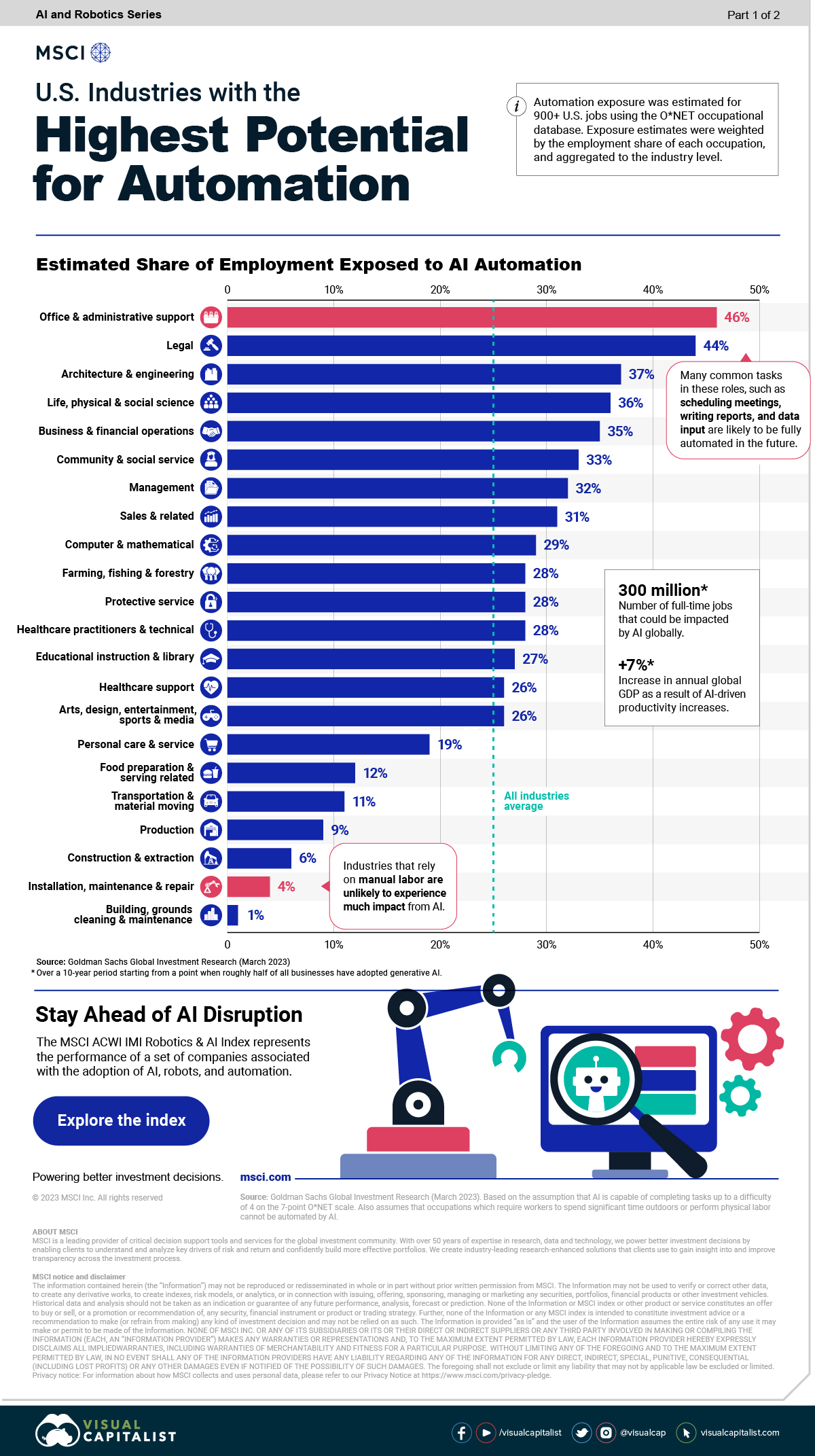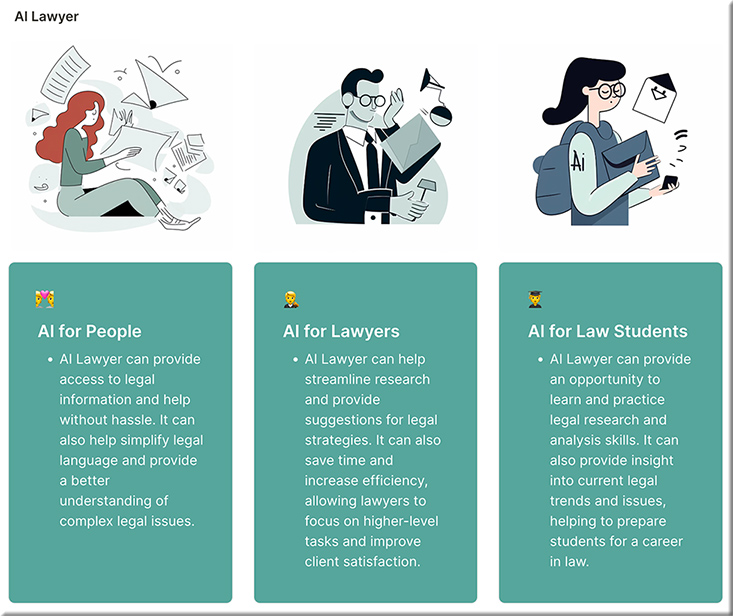Will Legal Prompt Engineers Replace Lawyers? — from forbes.com by Charles Lew
.
From DSC:
I’m not crazy about the click bait nature of the title, but the article lists some ways that AI could/is impacting the legal realm. For example, here’s an excerpt:
Engineers in this capacity might not be legal experts, but they excel in framing precise questions for these models, drawing out answers that align with legal nuances. Essentially, these experts represent a significant paradigm shift, evolving the role of legal practitioners.
In legal research, an LPE harnesses advanced models to improve comprehension. Specific legal texts, statutes or summaries fed into the AI yield clarifications, contextual insights or succinct summaries. This assists legal professionals in quickly grasping the implications of texts, streamlining the research process.
In legal drafting, AI can suggest relevant clauses, pinpoint angles of an argument and provide recommendations to enhance clarity. It ensures consistency in terminology and references, detects redundant language and verifies the accuracy of legal citations. It flags potential high-risk language, aligns with jurisdictional norms and prioritizes relevance through contextual analysis. The system checks coherence in stipulated timelines and identifies potentially biased or non-inclusive language.
For training and brainstorming, LPEs can present hypothetical situations, formulating questions that unearth potential legal arguments or implications. Not only does it serve as an instructional tool for budding legal professionals, it also exercises a fresh perspective for seasoned attorneys.
12 Thoughts on Promises and Challenges of AI in Legal after Yesterday’s AI Summit at Harvard Law School — from lawnext.com by Bob Ambrogi
- Armed with AI, pro se litigants could overwhelm the courts, so the courts need to be prepared to respond in kind.
- If AI is to enhance access to justice, it will not be only by increasing lawyer productivity, but also by directly empowering consumers.
- Even the AI experts don’t understand AI.
- Experts are already striving to make the black box of AI more transparent.
- Even as law firms adopt AI, they are finding implementation to be a challenge.
- …and more










